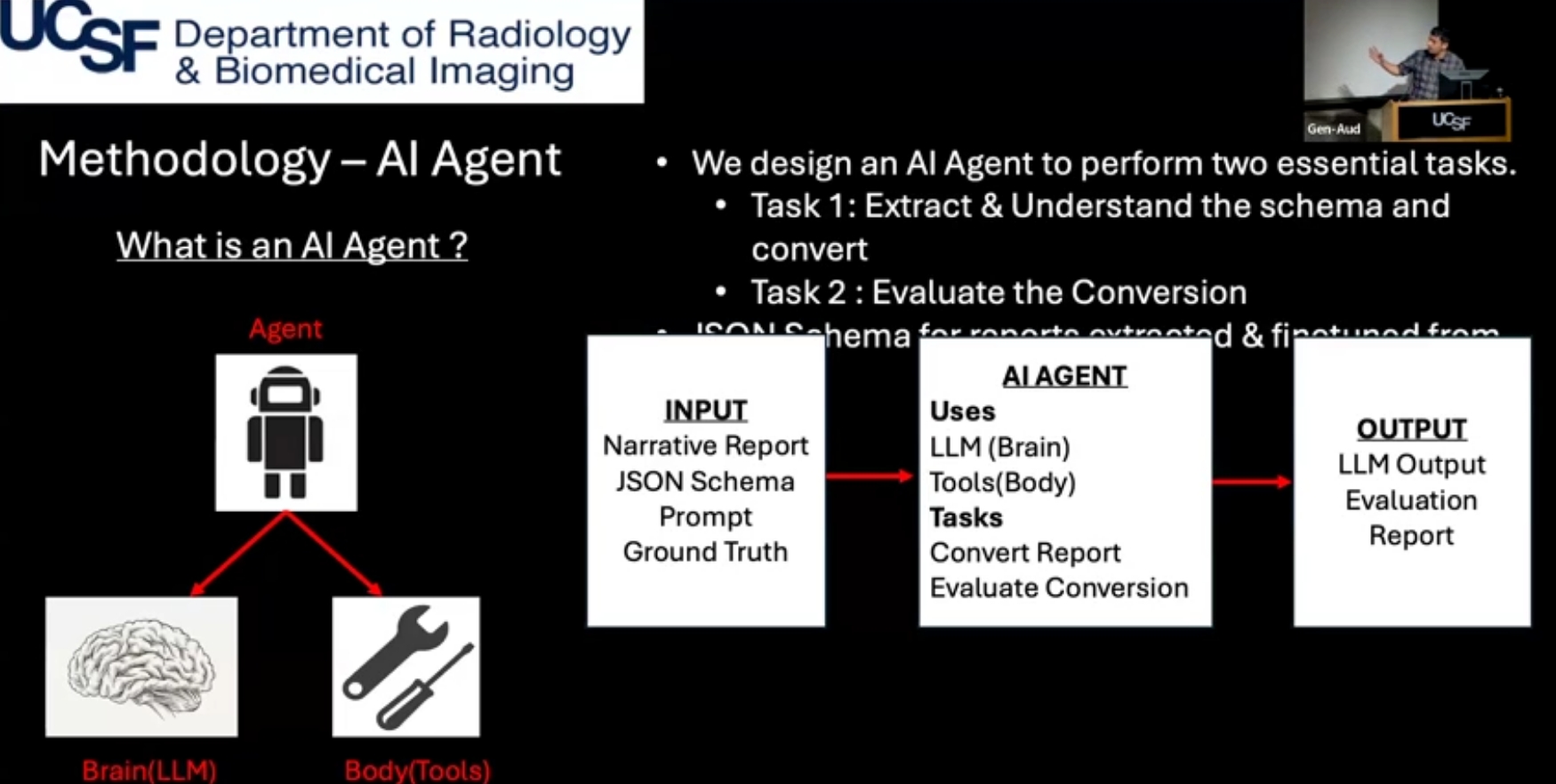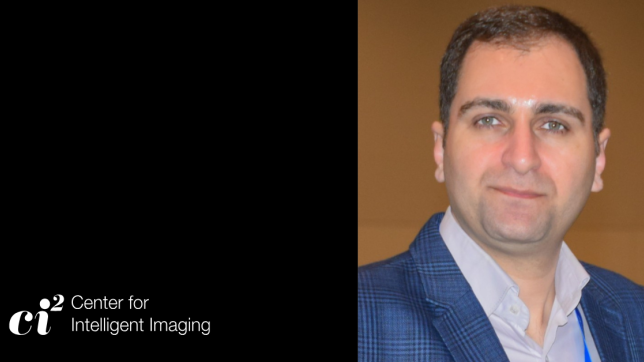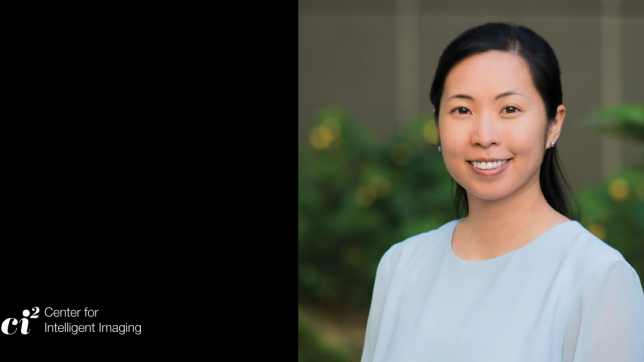On August 15, University of California, San Francisco (UCSF) Center for Intelligent Imaging (ci2) and Department of Radiology and Biomedical Imaging students presented at the Summer Student Symposium. The event was hosted by UCSF Radiology and co-sponsored by UCSF ci2 and Research Initiative to promote Diversity in Radiology (RIDR) program.
Summer fellows Harsh Tripathi, Koharu Sakiyama and Anoushka Shah represented UCSF ci2 and discussed the use of artificial intelligence in radiology.
Harsh Tripathi, who studies computer science at the University at Buffalo, presented "Structuring Radiology Reports Using Large Language Models (LLMs)." His work was also researched by Jhaydine Bandola, Beck Olsen, Rachel Johansson, Alexandra So and Rajesh Shah, MD. Using LLMS, guided with contextual examples, can be used to accurately automate the conversion from narrative to structured reports, Tripathi's research suggests. Tripathi created a gold standard reference set, which was further reviewed by clinical experts, using 75 reports manually converted from narrative format to structured, which were all sourced from UCSF EMERSE. Based on this data, he designed an AI agent to extract and understand the schema, convert it and then evaluate the conversion. Initial results showed an 80% conversion accuracy, with 55/66 fields having a match from the AI agent output when verified.

Koharu Sakiyama, a Molecular & Cell Biology major and Data Science minor at UC Berkeley, studied under Jae Ho Sohn, MD, MS. She presented her research, "Patient-Friendly LVLM Agent for CT Scan Interpretation in Lung Cancer Screening," at the RIDR Symposium. To enhance patient understanding and engagement, Sakiyama researched the capability of an AI agent for answering patient queries regarding lung cancer screening scans. Her results yielded more than 90% accurate when compared to self-regulated responses and the AI agent experienced no hallucinatory outputs. Sakiyama's research opens the door for future research in detecting and quantifying disease evidence for conditions common in lung cancer screening CT.

Anoushka Shah, who studies at UC Berkeley, presented "Automated Segmentation of DBS Electrodes using Deep Learning Methods." Under the guidance of Melanie Morrison, PhD, Shah created a standardized, automated tool to visualize and localize 3D electrode placement across brain-regions. Her dataset included 130 postoperative CT scans of Parkinson's patients. Shah highlighted areas of future research interest, including architecture of MRI data input and atlas mapping of brain region.

Congratulations to the ci2 interns on a successful summer of academic achievement and innovative research!



